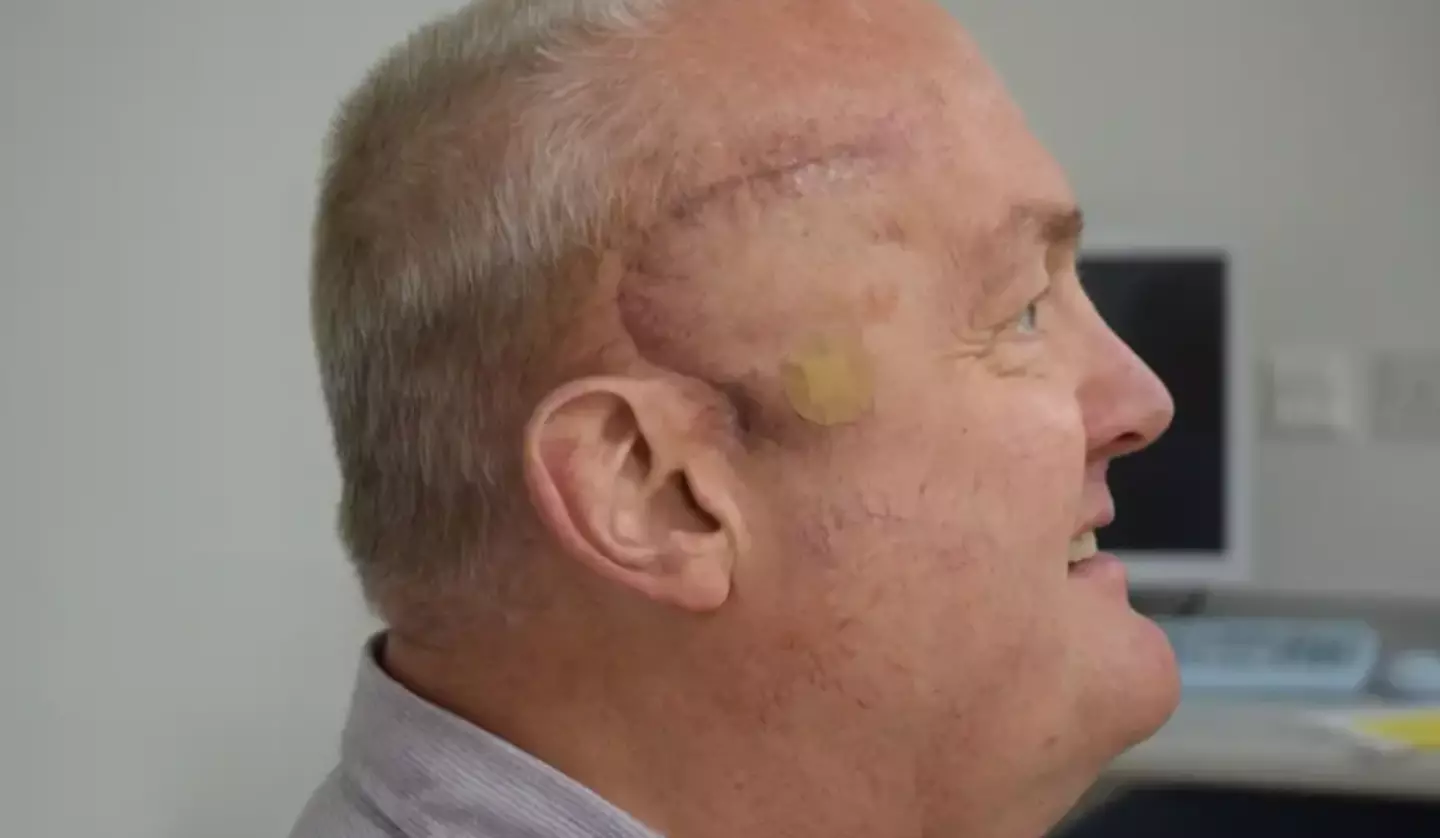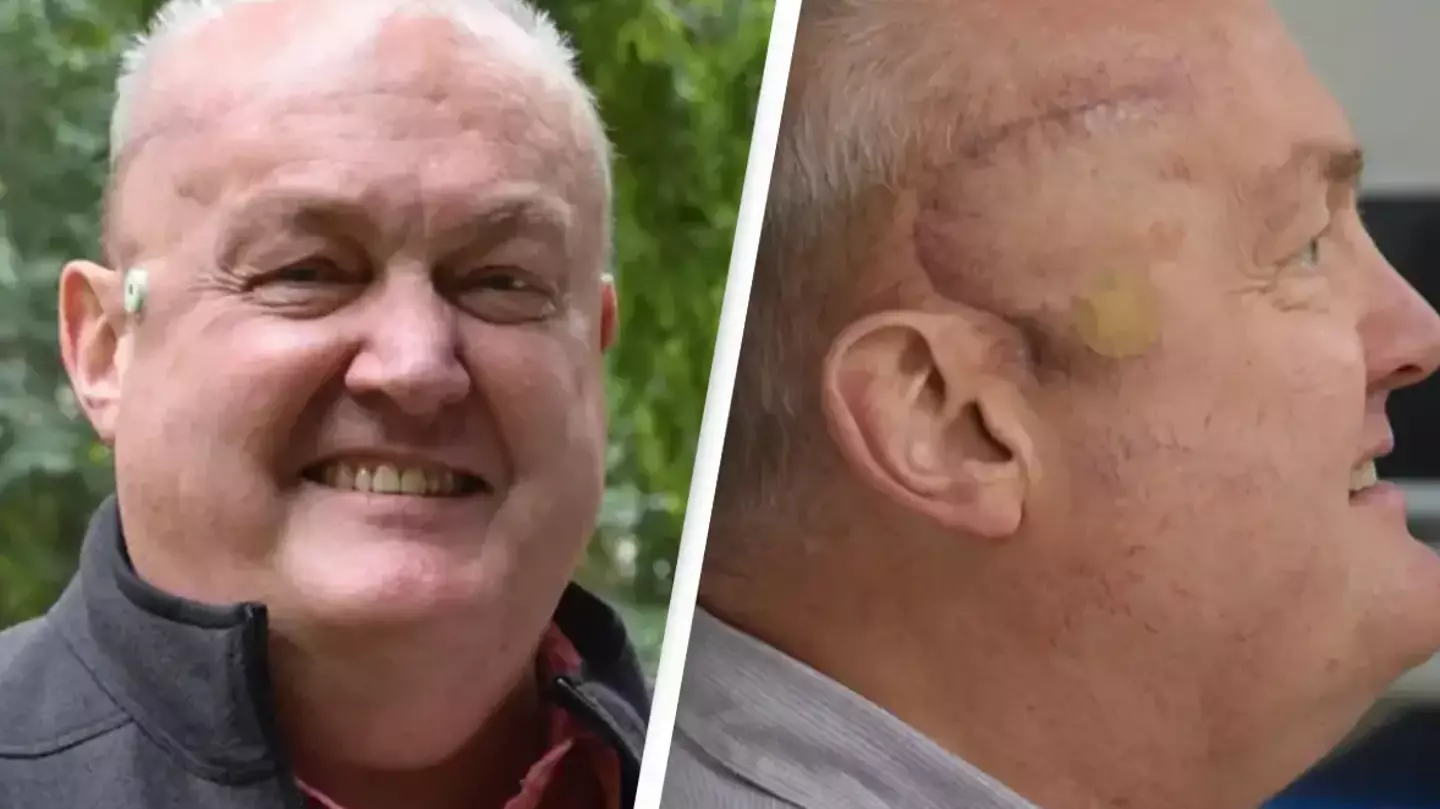A man in the UK who was given just a year to live has seen his brain tumor cut down in size by half after undergoing a new kind of cancer treatment.
Paul Read, 62, was diagnosed with glioblastoma in December 2023, a type of cancer which typically has a prognosis of 18 months.
However, an experimental treatment was tested on Paul, who saw a ‘50 percent’ reduction of his tumor thanks to the first-of-its-kind trial.
The treatment took place at the University College London Hospitals NHS Foundation Trust (UCLH), where doctors had surgeons remove as much of the tumor as they were able to before implanting a device called an Ommaya reservoir under his scalp.
Advert

After the device was fitted, the doctors went on to inject low levels of radioactivity into the tumor once a week for six weeks in total.
These injections were the key component, as doctors hoped it would kill the cancer cells but leave the surrounding tissue alone.
"Really quite remarkable"
As the treatment plan came to an end, brain scans incredibly showed that Paul’s tumor had ‘reduced in size by 50 percent’.
Dr Paul Mulholland, a consultant medical oncologist and chief investigator who leads the Glioblastoma Research Group at the UCL Cancer Institute, said: “We’ve just gone through [Paul’s] scan results with him and his end of treatment scan shows a reduction in the tumor, which is really quite remarkable for somebody whose tumor is so aggressive.”
In response to his results, Paul said in a statement: “This trial was a lifeline, as the likelihood of survival, according to the data, was a year or less for me.”
Dr Mulholland added in his statement via the hospital: “We have been working with Ariceum Therapeutics for some years to develop this study. It will allow us to deliver low levels of radioactivity directly into the tumour of patients with recurrent glioblastoma.

“I’m very pleased that this clinical trial is now open. Potentially this is a very powerful approach and I’m already extremely happy with the results from the first patient.
"I’m also very proud at how my colleagues in neurosurgery and nuclear medicine have come together as a team to deliver a really novel trial.”
"Potentially this is a very powerful approach"
Thankfully, Paul only noted being ‘a little more tired’ during his treatment and no major side effects were recorded.
The CITADEL-123 trial at UCLH was offered to Paul following his diagnosis and he ‘was happy to explore anything’.
Paul said: “We are all dealt a hand of cards and you don’t know which ones you are going to get.”
Before he underwent his treatment, he shared: “It will be wonderful if this treatment helps me and if it doesn’t, it doesn’t… it may benefit someone else down the line.”
Now, the same team who helped Paul are in the process of treating a second patient using the same procedure, with plans to expand to 40 patients in phase one of the trial.

